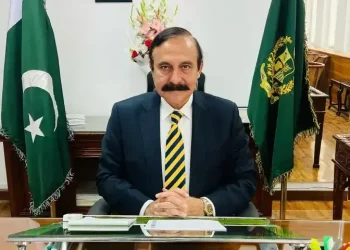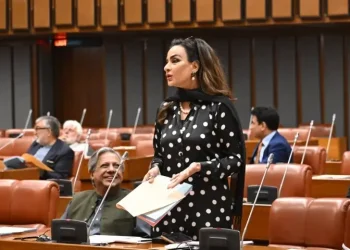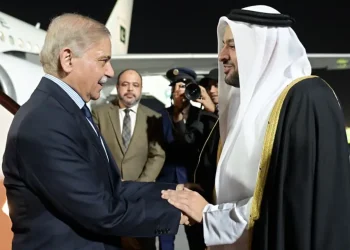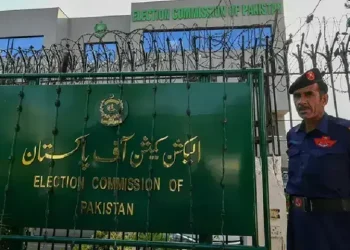ISLAMABAD: Coordinator to Prime Minister on Climate Change Romina Khurshid Alam on Monday called for streamlining access to climate finance for long-term adaptation and mitigation plans to make communities resilient against climate change.
The PM’s aide made these comments in a meeting with the International Finance Corporation (IFC) delegation which promised to collaborate with Pakistan in addressing climate change challenges. A four-member team led by IFC Global Director for Climate Jamie Fergusson met Romina Khurshid Alam on Monday.
The meeting focused on strengthening the partnership between the IFC and the climate change ministry with an emphasis on enhancing the capacity of stakeholders across various sectors to address the impacts of climate change. The delegation discussed strategies to improve Pakistan’s ability to respond to climate change, emphasising the importance of continued global support for developing nations.
Both sides highlighted the need for stronger partnerships to empower key stakeholders, including environmentalists, academics, and technical experts, to effectively combat climate change.
Romina meets IFC delegation, highlights importance of inclusive approaches to address climate change
In her remarks, Ms Alam underscored the urgent need for increased accessibility to climate funding to help developing countries mitigate and adapt to the effects of climate change.
She pointed out that despite contributing minimally to global greenhouse gas emissions, Pakistan is among the most vulnerable to the devastating impacts of climate change, including floods, droughts, and heatwaves. She stressed the importance of simplifying processes for developing countries to access climate funds, enabling large-scale projects aimed at reducing the impacts of climate change on communities and ecosystems.
Climate Change Secretary Aisha Humera Moriani discussed the “growing potential” of electric vehicles (EVs) in Pakistan’s efforts to cut carbon emissions and improve air quality. She proposed strengthening collaboration with the EV sector, particularly in light of rising demand for two-wheelers in the country.
She highlighted the popularity of two-wheelers in Pakistan and suggested that promoting electric two-wheelers could significantly reduce carbon emissions from transportation, improve air quality in urban areas, and decrease reliance on fossil fuels.
The delegation acknowledged the importance of this initiative and expressed interest in further exploring cooperation with the EV sector as part of a comprehensive strategy to address climate change. The discussion also covered the broader need to promote sustainable transportation solutions to reduce Pakistan’s carbon footprint.
width=”100%” frameborder=”0″ scrolling=”no” style=”height:250px;position:relative”
src=”
sandbox=”allow-same-origin allow-scripts allow-popups allow-modals allow-forms”>
In his remarks, Mr Fergusson recognised Pakistan’s vulnerability to climate change and emphasised the necessity of global cooperation in supporting the country’s climate efforts. He also reaffirmed the IFC’s commitment to providing technical expertise and strategic guidance to help Pakistan implement projects that promote climate resilience and sustainable development.
Both parties agreed that stronger collaboration between Pakistan and international financial institutions and the exchange of resources and ideas would be vital for advancing the country’s climate agenda.
Ms Alam reiterated her commitment to working closely with the IFC to secure the necessary resources for climate projects. She emphasised the importance of involving local stakeholders and communities to ensure that climate solutions were tailored to Pakistan’s unique needs.
Published in media, March 4th, 2025










 American Dollar Exchange Rate
American Dollar Exchange Rate